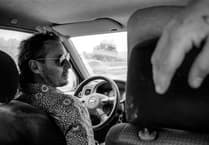More people aged under 40 years old in Cornwall and the Isles of Scilly opted for "no religion" on the census than identified as Christian, new survey figures show.
Humanists UK, which campaigned for people to tick "no religion" on the survey in March 2021, said the recent figures – which showed a rise in people under the age of 40 stating they are non-religious – make it clear that the nation faces a "non-religious future".
The Office for National Statistics data shows 150,500 people aged under 40 in Cornwall and the Isles of Scilly selected "no religion" – making up 64% of the age cohort.
It was followed by about 65,400 under-forties (28%) who selected Christianity.
In 2011, 47% of the same age group in Cornwall – then recorded separately from the Isles of Scilly – said they were Christian while 11% were not religious.
And in the Isles of Scilly, 43% identified as Christian and 12% as not religious.
A similar trend was seen across England and Wales, where "no religion" was the most selected option for under-40s. It's the first time Christianity did not hold the top spot for an age group.
About 13.6 million said they were not religious in 2021 while 9.8 million identified as Christian – a reversal from a decade ago when 13.9 million opted for Christianity and 9.4 million were non-religious.
Andrew Copson, Humanists UK chief executive, said the recent figures show a significant change in society: “They make plain that the UK faces a non-religious future. This is in stark contrast to how our state institutions operate today.
"No other European country has such a religious set-up as we do in terms of law and public policy, while at the same time having such a non-religious population.
“Politicians should look at today’s results and recognise they must renegotiate the place of religion or belief in today’s society.”
The ONS said: “Many factors can cause changes in the size of religious groups, including changing age structure, people relocating for work or education, and differences in the way individuals chose to self-identify (or how children’s religious affiliation was reported) between censuses.”
The census figures also show women in Cornwall and the Isles of Scilly were more likely to be religious. About 51% of women in the area chose a religion while 43% of men did.

.jpeg?width=209&height=140&crop=209:145,smart&quality=75)


